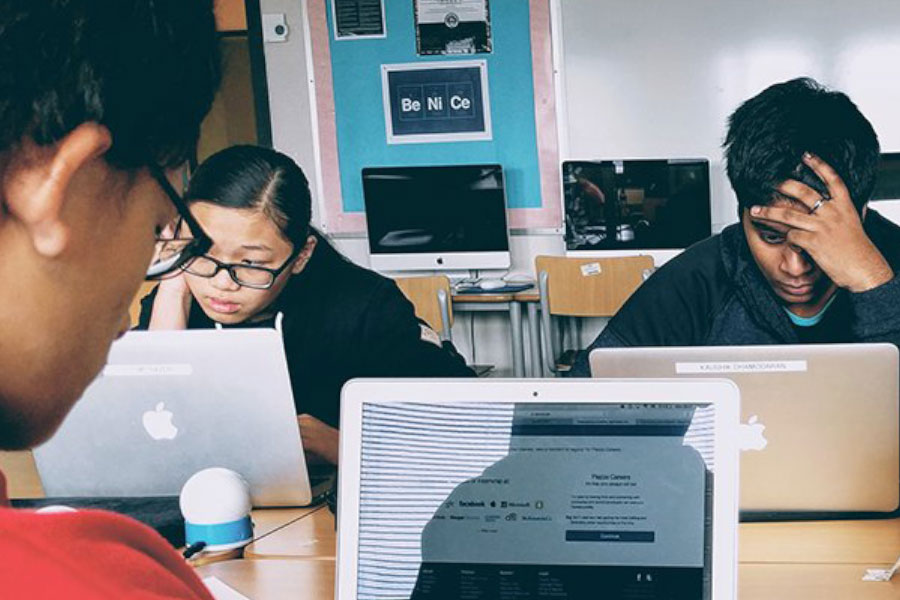
Carnegie Mellon's picoCTF hacking competition
By Daniel Tkacik
The cybersecurity workforce, which is currently struggling to fill seats with qualified talent, may have some newfound optimism. Over the past two weeks, upwards of 18,000 middle and high school students from across the United States learned and honed computer security skills in this year’s picoCTF online hacking contest, hosted by Carnegie Mellon University’s CyLab Security and Privacy Institute and co-sponsored by the Information Networking Institute (INI). The competition officially ended Friday, April 14, 2017.
“I am very impressed by the amount of effort the participants put in and how much they accomplished over two weeks,” said Marty Carlisle, picoCTF’s technical lead and a teaching professor in the INI. “I’m hoping these students will continue to pursue computer security and that I’ll get a chance to work with some of them here at Carnegie Mellon.”
William Parks, an INI Master of Science in Information Security (MSIS) student, served as the problem development lead for the project.
"I led a team of about 15 people to design, implement, and test the 70 problems that make up the competition," said Parks. "I got involved in picoCTF as I have learned a great deal through CTFing, and wanted to help others do the same."
MSIS student and picoCTF problem developer Melanie Rich-Wittrig also praised the competition as an extraordinary resource that motivates high school students to learn and gain invaluable experience in the security space.
The winning team, “1064CBread,” from Dos Pueblos High School in Goleta, CA, will receive their $5,000 cash award at an awards ceremony next month at Carnegie Mellon University’s campus in Pittsburgh, PA.
The second place team, “phsst,” will receive $2,500 and consisted of students from Naperville North High School (IL), Thomas Jefferson High School for Science and Technology (VA), and Montgomery County Public Schools (MD). Team “Thee in/s/ane Potato” will receive $1,500 for finishing in third, and consisted of students from Thomas Jefferson High School (PA) and Stuyvesant High School (NY).
“I think picoCTF is going to change lives here,” said Anita Johnson, a teacher at Kealing Middle School in Austin, Texas, who had thirty-two of her students participate in picoCTF. “It has been a tremendous learning experience for all of us. What surprises and pleases me the most is the level of interest from the girls.”
During a two-week period beginning March 31, over 12,000 teams of students from across the United States attempted to hack, decrypt, reverse-engineer, and do anything necessary to solve 68 computer security challenges created by Carnegie Mellon’s competitive hacking team, the Plaid Parliament of Pwning. Anyone could sign up and participate, but only United States students in grades 6-12 were eligible for prizes.
